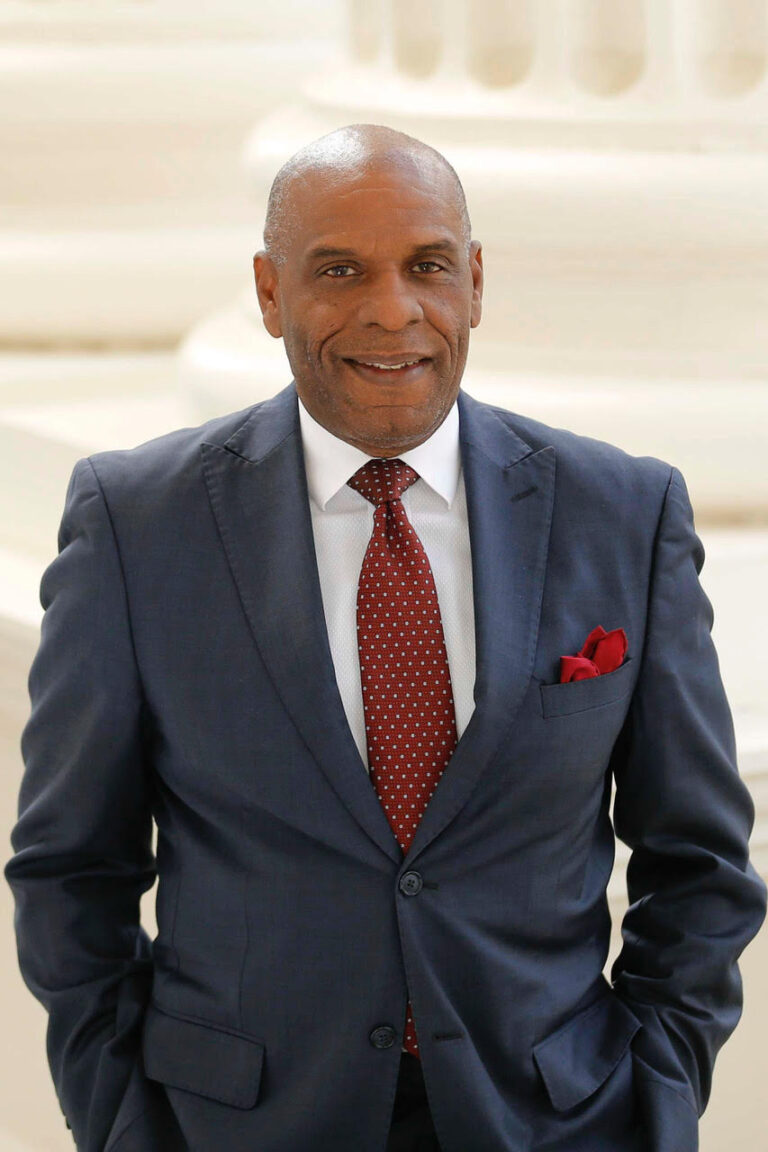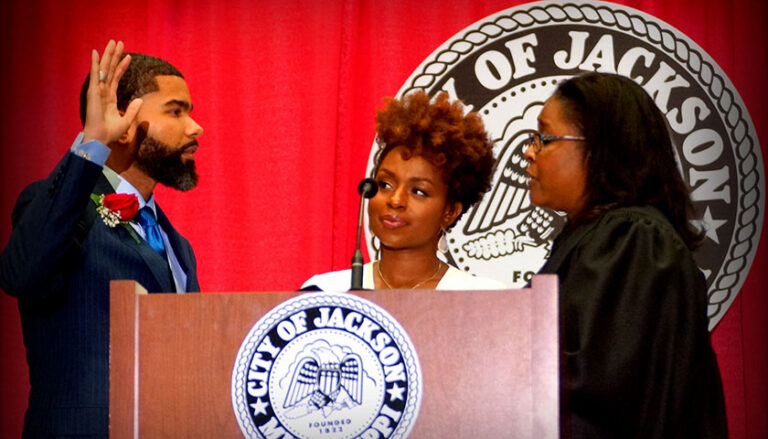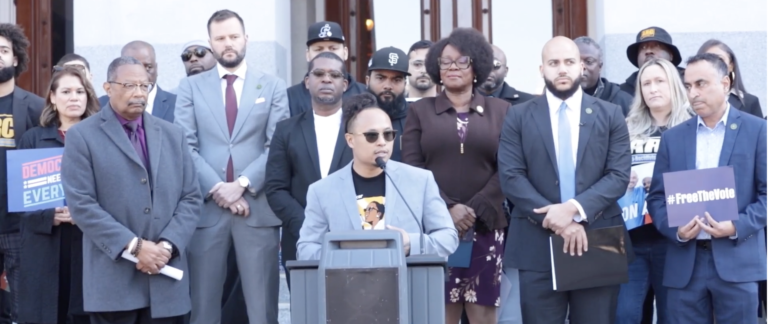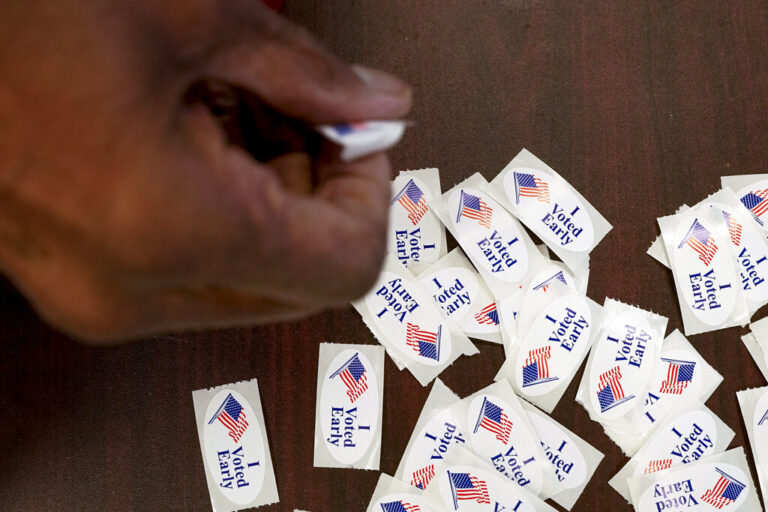By Charlene Muhammad, California Black Media
There was no “protect and serve.” Just an out of control and outside-the-bounds-of-their-authority attack on an unarmed Black man, said Sen. Seven Bradford (D-Gardena).
Bradford was referring to the beating death of Black motorist Tyre Nichols in Memphis.
The Memphis Police Department has terminated the five officers involved in Nichol’s death: Tadarrius Bean, Demetrius Haley, Desmond Mills Jr., Emmitt Martin III and Justin Smith. Each one was indicted on a second-degree murder charge and faces up to 60 years in prison if convicted.
Since the incident, Memphis Police Chief Cerelyn “CJ” Davis has deactivated the city’s SCORPION (Street Crimes Operations to Restore Peace in our Neighborhoods) unit. The 50-person unit of crime suppression officers was launched in 2021 to patrol hot spot crime areas.
“The beating and murder of Tyre Nichols by five Memphis Police Officers is brutal and heart-breaking,” said Bradford. “This is yet another example of the need to hold police officers accountable regardless of the color of their skin.”
In 2021, Bradford authored Senate Bill (SB) 2. The law creates a process to make sure police officers who break the law can never wear a badge again in California. “This legislation will save lives,” he said.
Bradford is currently working on SB 50, which would prohibit police in California from making traffic stops for low-level violations. This will reduce the potential for more harm to innocent citizens, said the lawmaker.
“We tend to pass a lot of legislation that doesn’t really have a lot of binding power,” said Cephus “Uncle Bobby” Johnson. His nephew, Oscar Grant, III was shot in the back while subdued on a Bay Area Rapid Transit District station platform on New Year Day in 2009.
The George Floyd Justice in Policing Act does not adequately address some of the most critical issues that we’re dealing with, said Johnson, referring to the bill named for the 46-year-old Minneapolis Black man who was murdered by White cop Derek Chauvin on May 25, 2020. The officer was convicted of 2nd and 3rd degree murder and manslaughter.
The bill would end police restraint techniques, including chokeholds and carotid holds at the federal level, as well as improve police training.
More money for training has been part of the problem, according to Johnson, who supported Assembly Bill (AB) 392, the California Act to Save Lives, which mandates that police officers should only use deadly force when necessary. It was introduced by California Secretary of State Shirley Weber when she was a San Diego Assemblymember. Gov. Gavin Newsom signed that bill in 2019.
“What happened to Tyre impacted so many in California. It re-traumatized many of the families,” said Johnson. “Many families’ wounds have been reopened. Many families’ hopes that there has been some progress have been totally erased,” continued Johnson.
In Los Angeles, the Rampart police division scandal exposed gang unit officers planting evidence, framing suspects, and stealing drugs and money.
In Oakland, a group of cops dubbed the “Riders” stood trial for beating, planting evidence on, and stealing drugs and money from alleged suspects. But a deadlocked jury acquitted them of eight charges and a judge declared a mistrial after they could not agree on 27 other charges. The officers went free.
“Initially, it looks like they’re doing great things but behind the scenes, people in communities will tell you they are terrorized by them,” said Johnson.
Marc Philpart, executive director of the California Black Freedom Fund, organized 26 foundation CEOs and leaders to issue a call to action to push back against systemic barriers. Established two and a half years ago following the murders of Breonna Taylor, Ahmaud Arbery, George Floyd, and countless others, the California Black Freedom Fund is a five-year, $100 million initiative created to mobilize the resources necessary to build Black power and eradicate systemic and institutional racism.
The coalition leaders posted on cablackfreedomfund.org a letter reminding the public of the protests that gave voice to collective outrage, frustration, and grief that permeated Black communities and communities across the country in 2020.
“America recognized that the problem lies not within Black communities, but within structures that institutionalize and perpetuate racial violence and inequity,” they wrote.
Nationally, police killed at least 1,176 people in 2022 – about 100 a month – making last year the deadliest year on record for police violence since killings began being tracked, according to Mapping Police Violence.
“While the nation is grieving, some are making statements telling Black people how to express their outrage. That’s not the focus of our letter. Our letter is a call to action for everyone concerned with the brutalization of Black people and Black communities,” the leaders wrote.

During a Jan. 29 protest for Mr. Nichols and 31-year-old Keenan Anderson, Dr. Melina Abdullah, co-founder of Black Lives Matter L.A. and Black Lives Matter Grassroots, said outrage over the police-involved murders of Black men is justified.
“We should shed tears. We should feel it. We should refuse to become numb. Our hearts should break,” shouted Abdullah.
“We should allow ourselves to sob in the dark of the night. And we should demand justice, not just for what’s happening in Memphis, but what’s happening right here in L.A.,” said Abdullah to demonstrators blocking the intersection of Lincoln and Venice boulevards. The location is where Anderson, a cousin of Black Lives Matter Movement co-founder Patrisse Cullors, flagged down a Los Angeles Police Department motorcycle officer for help following a traffic collision.
Anderson died in police custody hours later, after being tasered six times on the back of his heart, according to family attorneys. LAPD body cameras detailed what happened during the minor traffic stop, when a man, afraid, called the police for help, said family attorney Carl Douglas. In every way, Anderson was respectful of authority: “Sir! Help me, sir,” the unarmed and compliant man repeatedly pled, Douglas said.
“That officer then calls for backup, and Keenan sees several officers then rushing toward him. His reaction then was a reaction that several Black men would react in a similar situation, one of fear. And that fear drove him to run into the middle of the street,” stated Douglas.
Back in Memphis, Mr. Nichols’ brother Michael Cutrer urged people to stand together and fight for their rights. “We definitely speak loud and proud, and we are there marching and protesting and all that’s great, but it has to be about something,” he said.














